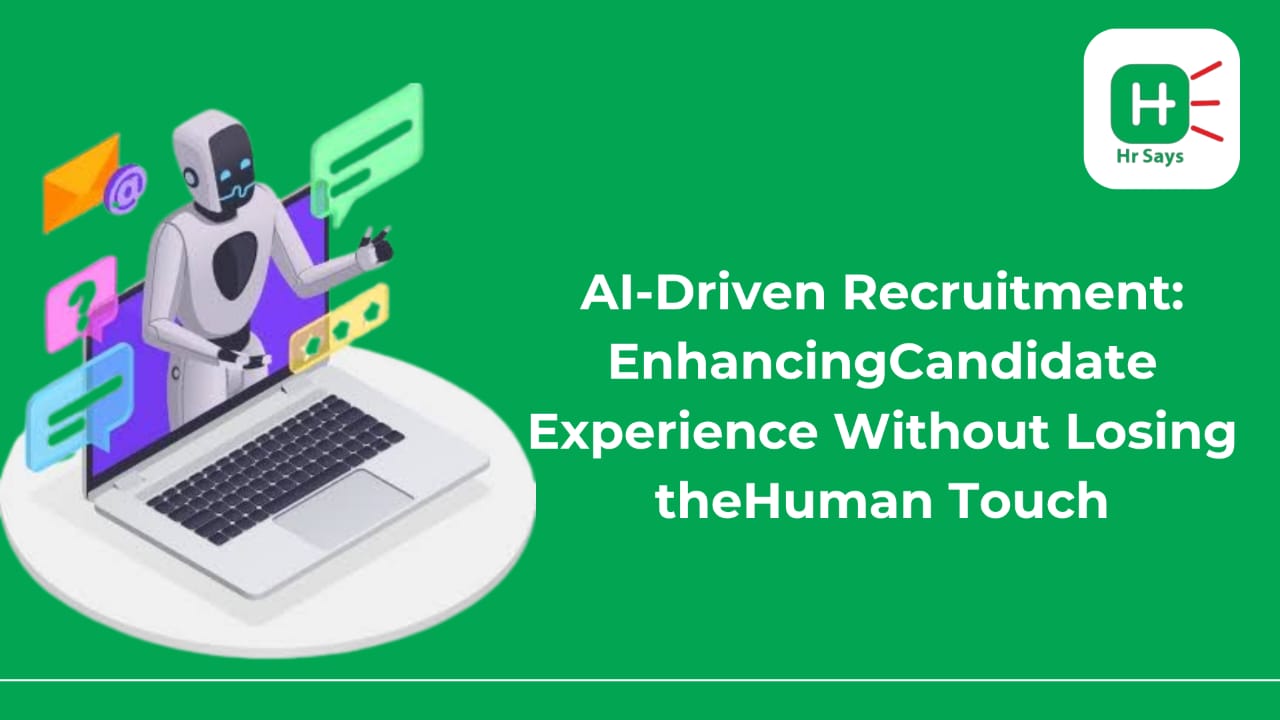Can a machine truly judge a human fit? That’s the question employers are quietly asking. As resumes get filtered and interviews pre-scheduled by bots, one thing risks being lost—the human touch.
AI in recruitment is here. But how far should it go?
Efficiency Has a Price
Recruitment used to take weeks. Now, AI screens thousands of CVs in minutes. It shortlists, ranks, and even chats. On paper, everything looks smoother.
● Delays have reduced.
● Bias is being addressed (or so it seems).
● Time-to-hire has shrunk.
● Recruiters feel relieved.
But behind the screen, many candidates feel something is missing.
A pause. A voice. A sense that someone, not something, saw them.
The Experience Gap
Candidates notice when replies sound templated. They sense when interviews feel robotic. AI may answer faster—but it often forgets to care.
Some common complaints?
● No feedback after interviews.
● Over-filtering resumes based on keywords.
● Video interviews judged by facial expressions or tone.
● Lack of real interaction.
Job seekers don’t just want results. They want to feel seen.
Where AI Should Step Back
Not all steps need automation. Some should stay human.
Here’s where AI might do more harm than good:
● Final interviews: Nuance matters. AI can’t read body language the way people do.
● Rejections: A cold auto-response leaves a lasting bad impression.
● Salary discussions: Context and empathy are key.
● Cultural fit decisions: Algorithms can’t feel team dynamics.
The best candidate experience doesn’t remove people—it blends tools with touch.
What Works Better?
Instead of letting AI run the show, companies are learning to co-pilot. Here’s how balance can
be built:
● Use AI to filter, but let humans decide.
● Automate FAQs but offer real-time chats with recruiters.
● Add personalization to auto-emails—mention names, roles, interview dates.
● Share feedback, even if brief. Silence hurts more.
Candidates remember how they were treated. Not just whether they were hired.
The Takeaway
AI isn’t the enemy. It’s the overuse of it that damages trust. Technology should serve people,
not replace their role entirely.
The smartest companies will be those that hire with heart—supported by software, but led by
humans.
Conclusion
The future of hiring doesn’t lie in choosing between AI or empathy. It lies in blending both—intelligently.
Because in the end, candidates don’t apply to a system. They apply to a culture.
And that must always feel human.

 Automation in hiring is booming. AI is speeding up screening and saving hours. But candidates aren't just profiles—they’re people. The real challenge? Using AI without erasing empathy.
Automation in hiring is booming. AI is speeding up screening and saving hours. But candidates aren't just profiles—they’re people. The real challenge? Using AI without erasing empathy.








.jpeg)
.jpeg)

.jpeg)





.jpeg)



.jpeg)

.jpeg)



